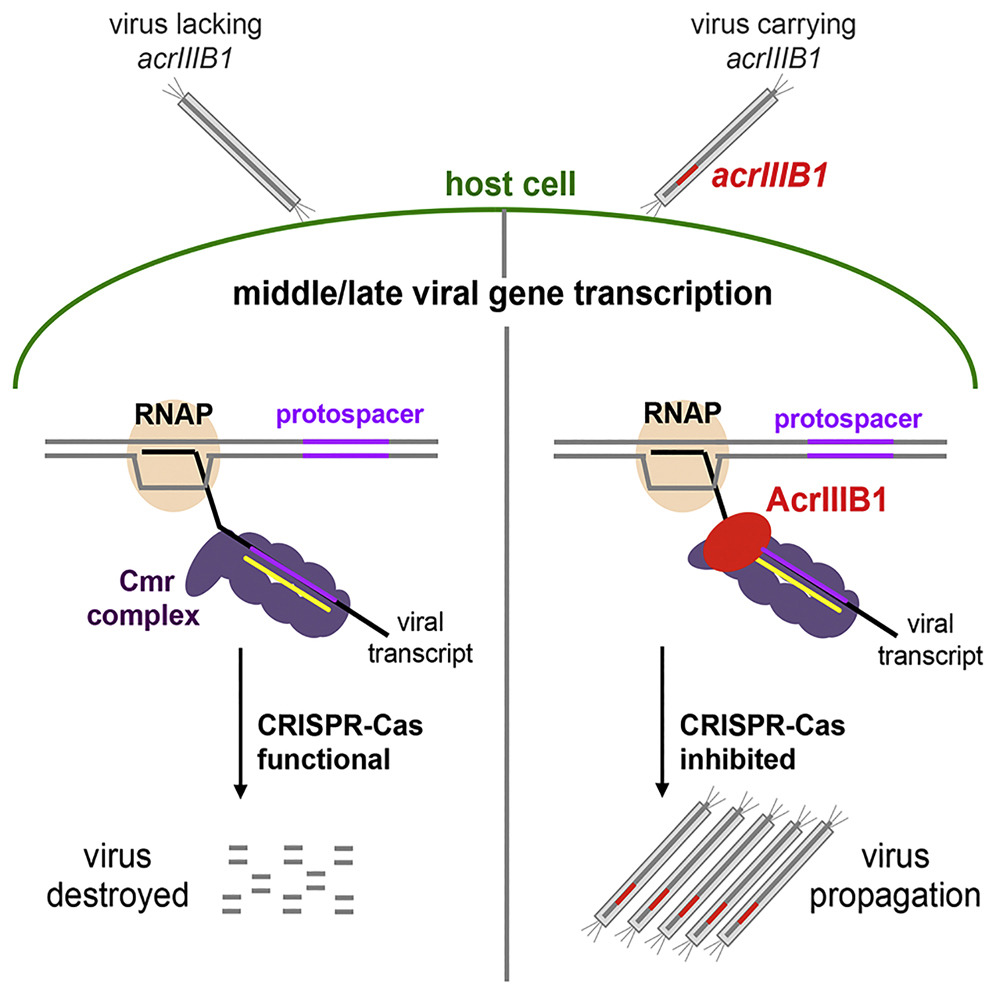Viruses win the virus-host conflicts
Prokaryotes and their viruses constitute a vastly diverse and highly abundant group of biological entities on earth. During the course of evolution, prokaryotes have developed numerous defensive strategies against invading genetic elements. Viruses, in turn, have evolved counteracting mechanisms. CRISPR-Cas constitutes the only known prokaryotic adaptive immune system against invading viruses and plasmids. Researchers from the University of Copenhagen have characterised an archaeal virus-encoded anti-CRISPR protein and their results are now being published in Cell.
Bacteria and archaea possess a striking diversity of CRISPR-Cas systems divided into six types, posing a significant barrier to viral infection.
Just as human beings who need good rest and sleep in order to recover from flu, prokaryotes (bacteria and archaea) enter into dormancy when they use a special type of immune system to fight against viral infections. This special immune system is termed type III CRISPR-Cas which, upon recognition of the invading virus, initiates a series of reactions that include synthesizing a signal molecule. The signal molecule then activates an RNase which triggers cell dormancy. The cell dormancy leads to a halt in viral propagation and thereby provides time for the cell to eliminate the infecting viruses.

During a long-term arms race, prokaryotic viruses have evolved different mechanisms to counteract host immunity.
-“Recently we discovered that an archaeal virus isolated from a hot spring on Iceland could inhibit type III CRISPR-Cas immunity”, explains the lead author, Associate Professor, Xu Peng, Department of Biology, University of Copenhagen. “This virus produces an anti-CRISPR protein that inhibits type III CRISPR-Cas immunity by preventing the cells from entering into dormancy”.
The work sheds new and important insights into the complexity of the prokaryotic viral arms race. The newly characterised anti-CRISPR protein is valuable for determining the mechanism by which type III CRISPR-Cas systems trigger cell dormancy.
Contact
Xu Peng
Associate Professor
Department of Biology
University of Copenhagen
Mail: peng@bio.ku.dk
Phone: +45 35322018
Helle Kirstine Blæsild
PR & Communication
Department of Biology
University of Copenhagen
Mail: kommunikation@bio.ku.dk
Phone: +45 2875 2076
Sidsel Kretzschmer Henriksen
Science Communicator
Department of Biology
University of Copenhagen
Mail: sidsel.henriksen@bio.ku.dk
Phone: +45 35334147
